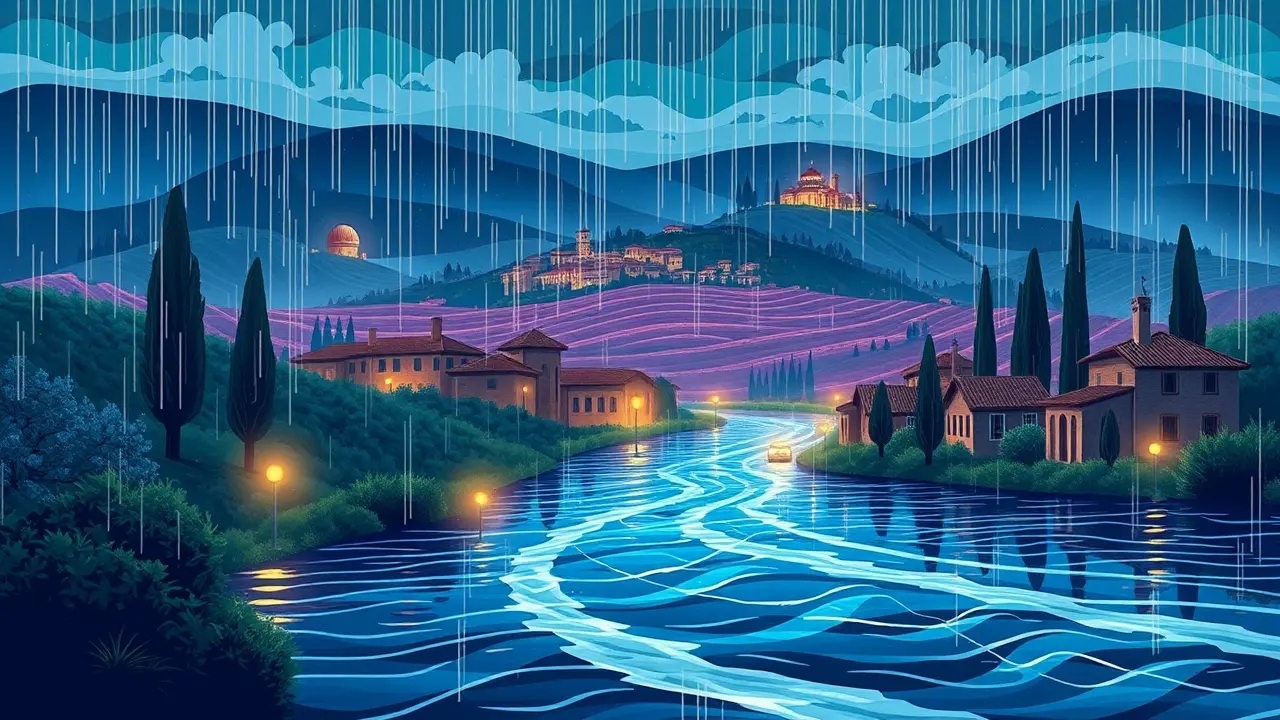
Otherweather & natural eventsFloods and Landslides
Heavy Rains Cause Flooding in Parts of Tuscany
RA
Rachel Adams
2 days ago7 min read
The serene landscapes of Tuscany, a region celebrated for its rolling hills and Renaissance art, were transformed into scenes of chaotic inundation as torrential rains unleashed widespread flooding, a stark reminder of nature's formidable power that coincides ominously with an unstable weather system gripping the entire Italian peninsula this Halloween. This is not an isolated downpour but a symptom of a larger, more troubling pattern; as a biologist with a focus on climate and ecology, I see these events through the lens of our rapidly changing planet, where the data from the European Environment Agency paints a grim picture of increasing frequency and intensity of extreme weather events across the Mediterranean.The immediate imagery is visceral—muddy waters cascading through the historic streets of towns like Florence and Pisa, submerging centuries-old piazzas, and forcing residents and tourists alike to navigate submerged roads, a direct assault on both human safety and priceless cultural heritage. Meanwhile, the meteorological forecast reads like a script for continental unrest, with the north of Italy bearing the brunt of these relentless precipitations while the southern regions, including Calabria and Sicily, brace for their own confrontation with volatile thunderstorms, creating a nation bifurcated by similar yet distinct atmospheric fury.To understand this, one must look at the climatological context: the Mediterranean has become a hotspot for climate change, with rising sea surface temperatures supercharging storm systems, leading to these so-called 'rain bombs' that overwhelm antiquated drainage infrastructure never designed for such deluges. I am reminded of the devastating floods in Genoa in 2011 or the more recent catastrophe in the Marche region, historical precedents that we, as a society, have failed to learn from, each event a tragic echo amplified by our continued reliance on fossil fuels and the slow pace of green policy implementation.The consequences are multifaceted and extend far beyond waterlogged basements; we are looking at significant agricultural damage to Tuscan vineyards and olive groves, potential long-term soil erosion that degrades arable land, and a profound psychological impact on communities who face the recurring trauma of displacement and loss. Expert commentary from hydrologists at the University of Bologna underscores the critical need for updated water management strategies and natural flood defenses, such as reforestation in the Apennines to absorb excess rainfall, yet these solutions are often deprioritized in political agendas.From an ecological standpoint, this event disrupts local ecosystems, washing pollutants from urban areas into fragile riverine habitats and threatening biodiversity, a silent casualty often overlooked in the immediate human crisis. The broader implication is a clear signal that the climate crisis is not a future abstraction but a present-day, visceral reality, demanding not just emergency response but a fundamental re-evaluation of our relationship with the environment, pushing for resilient, sustainable planning before the next storm inevitably arrives.
#featured
#heavy rain
#flooding
#Tuscany
#Italy
#Halloween weather
#thunderstorms
#natural disaster
Stay Informed. Act Smarter.
Get weekly highlights, major headlines, and expert insights — then put your knowledge to work in our live prediction markets.
Comments
It’s quiet here...Start the conversation by leaving the first comment.
© 2025 Outpoll Service LTD. All rights reserved.